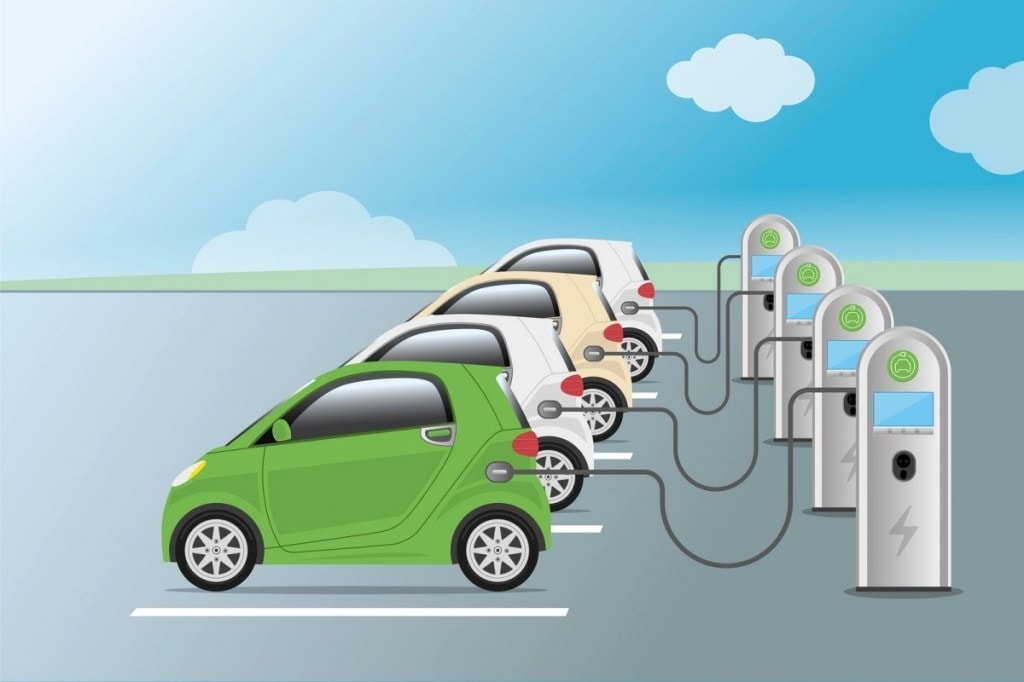By: Rushil Shah, Principal Associate and Prakhil Mishra, Senior Associate of Economic Laws Practice
As part of its climate action plan, India has set ambitious targets to combat carbon emissions. By 2030, the country aims to reduce its carbon emissions and strive for net zero emissions by 2070. To achieve this, India is committed to installing 450 GW of renewable energy sources by 2030. Additionally, the government is actively promoting the adoption of electric vehicles (EVs) and targeting a 30% penetration rate by 2030 (popularly known as EV 30@30 ) .
To drive EV sales, it is crucial for the Government of India (GOI) to establish a robust infrastructure for the EV ecosystem. This includes the urgent implementation of widespread EV Charging Stations nationwide. EV charging environment
Typically, EV charging requires a supply of Direct Current (“DC”) to the battery pack. However, the electric distribution systems in India supply Alternate current (“AC”) and therefore there is a need to convert the AC to DC for charging an EV battery. This conversion is achieved either by installing a converter to the onboard charger of an EV or by a charging infrastructure that converts AC to DC before power is supplied to the battery pack. Another alternate method that is receiving global attention for meeting the charging needs of EVs is the battery swapping method, in which a depleted EV battery is removed from the vehicle and replaced with a fully charged one. Further, EV charging needs would depend upon factors including vehicle type (such as e2W, e3W, e-cars, e-buses, etc.), battery capacity, charging methods (AC/DC, battery swapping), and power ratings (such as required power level and current type).
Need for EV Safety Standards
While there are multiple ways to charge electric vehicles (EVs), it is crucial to prioritize safety measures at EV charging stations. In response to incidents of EVs catching fire in different regions, the GOI has been closely monitoring testing criteria and mandatory standards related to EV batteries and charging stations. To address these concerns, the GOI, through the Bureau of Indian Standards (BIS) – the national standards body, has introduced the following Indian Standards.:
- Indian Standards for EV Batteries (IS 17855:2022)
- Indian Standards for AC charging (IS 17017 Part 1: 2018)
- Indian Standards for DC charging (IS 17017 Part 23: 2021)
- Indian Standards for battery swapping (still at a draft stage)
- Indian Standards on Road Vehicles — Vehicle to Grid Communication Interface Part 1 General Information and Use-case Definition (IS 15118: Part 1: 2013)
Compliance with Indian Standards Mandatory?
Currently, the GOI has not yet mandated a Quality Control Order (“QCO”), to ensure compliance with the above standards. Consequently, compliance with the above standards is at present voluntary and not mandatory. However, once a QCO is issued, compliance with the above standards would become mandatory to the extent specified.
Gearing up to comply with Indian Standards
Considering the government’s objective of enhancing the reputation of Indian products globally, mandatory compliance with Indian Standards through a QCO (Quality Control Order) would be the next plausible step. Therefore, it is essential for EV manufacturers, EV charging equipment manufacturers, EV charging station operators, and others to prepare themselves to meet the specific requirements outlined by a QCO and adhere to Indian Standards.The procedure for obtaining the BIS certification is stipulated under the Bureau of Indian Standards (Conformity Assessment) Regulations, 2018 (“BIS Regulations”). The typical stages which are involved in obtaining BIS certification are illustrated in the chart below:
Why is it essential to gear up?
As it is evident from the above, complying with Indian Standard and QCO, though a systematic process, involves various stages and requires adequate time and preparation. Considering that the EV ecosystem space is highly competitive, it may be advisable for entities to adequately prepare for the implementation of QCO and Indian Standards.
In addition to gaining the competitive edge, complying with QCO once implemented would also be essential as it would have implications under other statutes/regulations such as the Customs law, Government incentive schemes, and other allied laws. It will, therefore, become necessary to integrate the implementation of QCO with the corresponding changes in other statutes/regulations.
In conclusion, this is an opportune time to reevaluate and enhance internal systems to effectively adapt to the requirements of a possible QCO. Also worth considering, is gearing up for representations to the Government with respect to potential issues which might come up in complying with the QCO.
Disclaimer: Views expressed are personal and do not reflect the official position or policy of Financial Express Online. Reproducing this content without permission is prohibited.
